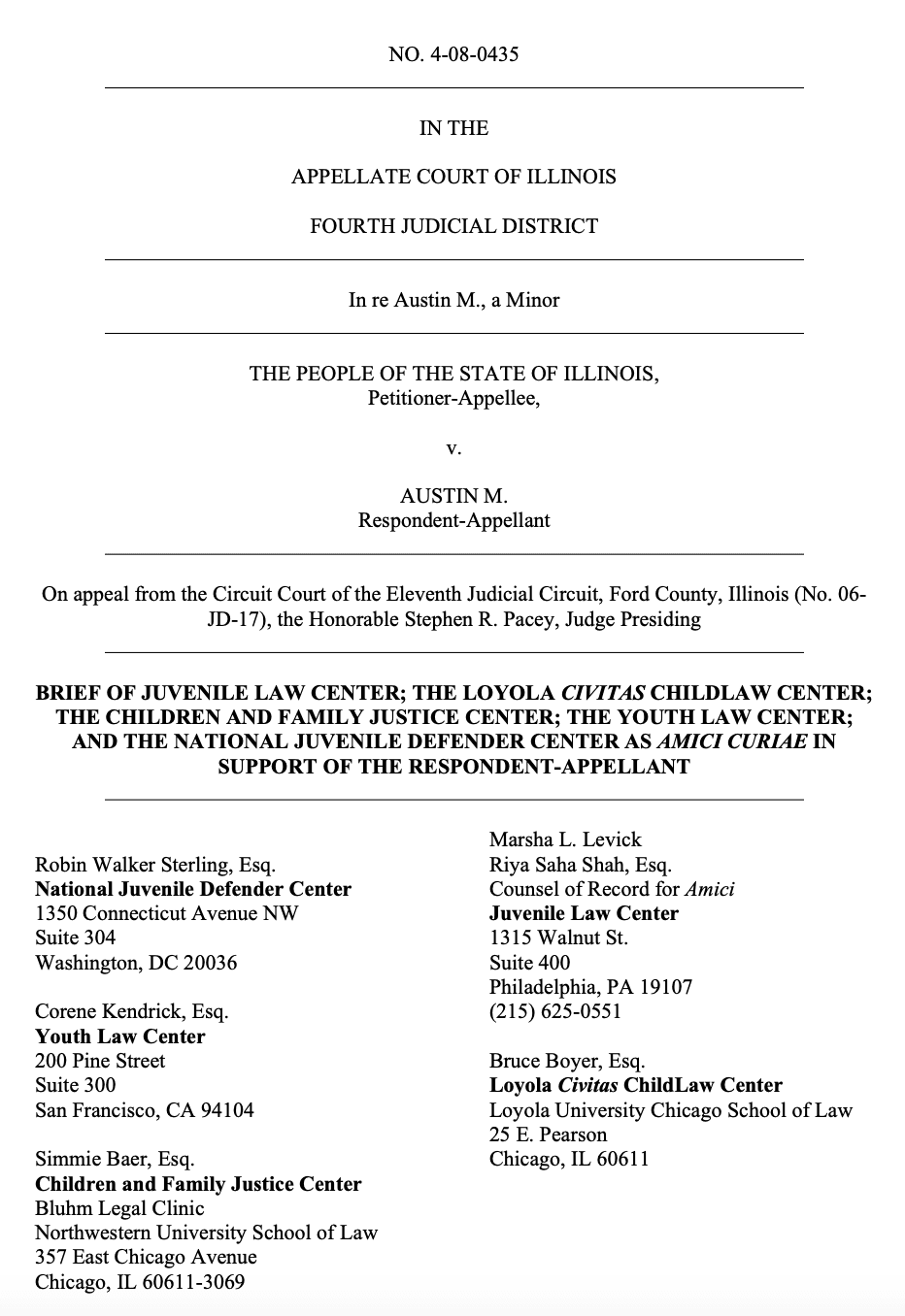
Summary of Argument
More than forty years ago, the United States Supreme Court extended the constitutional guarantee of counsel to youth facing delinquency charges. This was not the right to a guardian ad litem (GAL) representing the best interests of the child, but the right to zealous representation, just as an adult has in a criminal proceeding. While juvenile court may not mirror the adult criminal justice system in all respects, during the delinquency hearing, a child has a right to counsel coextensive with adults in criminal trials. Providing a child with a counsel who serves as both a GAL and a defense lawyer fails to ensure the fundamental fairness required under the United States Constitution and violates the attorney’s ethical and professional obligations to his client. As more punitive changes to the juvenile justice system become widespread, the guarantee to effective and zealous representation has taken on even greater importance.
The attorney in the instant case explicitly defined his role as “seeking the truth.” By equating his role with that of the judge and the prosecutor, Austin’s counsel completely failed to fulfill his legal and ethical obligation to serve as a zealous advocate for his client. This case illustrates the dangers of allowing lawyers to wear two hats in juvenile court; such practice effectively silences youth facing delinquency charges that not only threaten their liberty but also carry significant collateral consequences that may follow them throughout their lives.